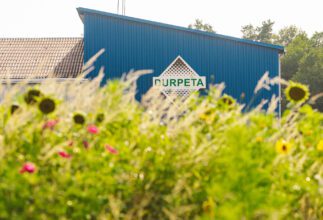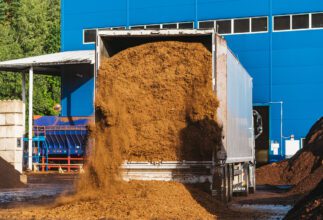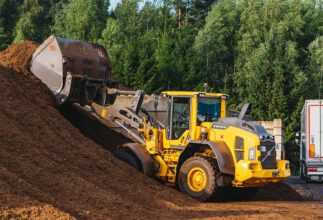UAB Durpeta is one of the oldest peat extraction and processing companies currently operating in Lithuania. Peat extraction in Šepeta started in 1936. The company has continuously expanded the range of its activities and product assortment, which over the years included wooden tare boards, peat insulation panels, peat chunks for heating, and peat litter. In 1990, the production of peat substrates started, and the first substrates for professional use were produced in 1997.
Increasing demand and higher quality requirements prompted the company to undertake a major reconstruction of its production facilities in 2010. The new substrate plant was recognised as one of the most modern substrate plants in the Baltics. A computerised process management and quality control system was installed in the plant. The result of the joint work of the company’s specialists and professional growers and consultants from all over the world is a substrate database with more than 500 recipes for flowers, vegetables, ornamental plants, etc. At present, light (blonde) chunky peat, brown peat and black peat are processed. Various additives are blended into the peat substrate as needed: fertiliser, lime, clay, sand, perlite, trace elements, biohumus, coconut fibre, etc. The company’s products are exported to more than 40 countries.
There is no doubt that peat extraction, during the Soviet occupation as well as nowadays, has had a significant impact on the economic development of Kupiškis District. Over 500,000 m3 of peat is extracted annually, 160 full-time employees are employed, and more than 120 seasonal employees are hired for peat extraction in summer. The company participates in the world’s leading trade fair for horticulture, IPM, in Essen (Germany), as well as in trade fairs and exhibitions in Poland, Spain and elsewhere.
We extract and process natural resources (namely, peat), so we are very aware of our responsibility for the environment around us. We are an ethical and responsible company. We pay close attention to the development of new, environmentally-friendly production methods, comply with all the rules for the management and use of peatlands, and support cultural, educational and environmental projects in the local community.










